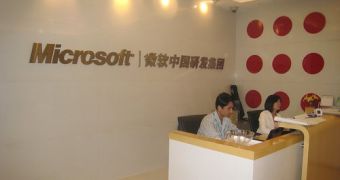Microsoft recently discovered that four large Chinese companies are using unlicensed software on their workstations, so teaming up with Beijing authorities to quickly tackle the problem of software piracy was only a matter of time.
The Redmond-based software giant indeed contacted Beijing officials and requested them to provide support in its action against software piracy, a problem that causes losses of billions of dollars every year.
PetroChina’s parent firm China National Petroleum Corporation is one of the companies accused of using illegal copies of Microsoft’s Office on its computers, with the Windows maker claiming that no less than 40 percent of the workstations contain unlicensed content, according to People’s Daily Online.
What’s more interesting however is that Microsoft adopts a similar strategy as in 2006, when the company contacted Beijing authorities in another action against software piracy. At that time, Lenovo and Founder, two of the largest PC makers in China, were forced to install genuine copies of the Windows operating system on all computers, which obviously raised the final price of their systems.
Computer manufacturers had previously installed open-source operating systems in an attempt to keep the price down or sometimes shipped the systems with no operating system at all.
Microsoft, on the other hand, didn’t reveal the way it plans to fight piracy, but contacting Beijing to get support is indeed the right way to do it.
Chinese companies, however, denied last week that their computers are using pirated content and admitted that an internal investigation will be started anytime soon.
“We do not rule out the possibility some subsidiary units may have used unauthorized software, but it certainly is not such a large proportion,” China Railway Construction said in a statement sent to BusinessWeek. “The company attaches great importance to this matter, and we are holding an internal inquiry.”

 14 DAY TRIAL //
14 DAY TRIAL //